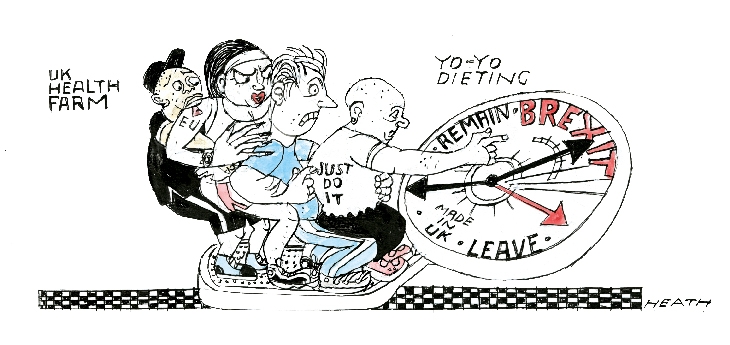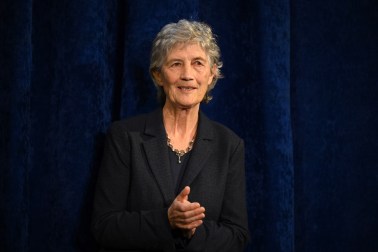Home
The Commons voted in favour of a new runway at Heathrow by 415 votes to 119. Boris Johnson, the Foreign Secretary, who had previously promised to lie in front of the bulldozers, absented himself from the vote, instead meeting the Deputy Foreign Minister of Afghanistan in Kabul. ‘My resignation would have achieved absolutely nothing,’ he said. Greg Hands resigned as trade minister because he opposed the runway. The Scottish government said it still supported the runway even though SNP MPs at Westminster abstained. Spanish-owned Ferrovial, which operates Heathrow, is to move its international headquarters from Britain to Amsterdam because of Brexit. Friends of Gavin Williamson, the Defence Secretary, denied he had threatened to topple the Prime Minister unless defence spending was increased. After a meeting between the two, Theresa May had refused to say that Britain would remain a ‘tier one’ power. Liz Truss, the Chief Secretary to the Treasury, said during a speech she made at the London School of Economics: ‘It is not macho just to demand more money.’ Dozens of houses were evacuated as fire spread across Saddleworth Moor on the outskirts of Manchester.
The EU Withdrawal Bill became law but the cabinet remained bafflingly divided over Brexit. At an event for EU diplomats in London, Boris Johnson, asked about corporate anxieties over a so-called hard Brexit, was reported to have said: ‘Fuck business.’ Airbus had said that it could cease operations in Britain entirely if there was no deal. Scotland’s biggest abattoir halted operations because of a shortage of carbon dioxide to stun pigs; supplies of keg beer for World Cup football fans were also affected. The government had stern words for fat children, half of whom it plans to do away with by 2030.
Khalid Ali, 28, a plumber from Edmonton in north London, who was arrested last year in Parliament Street with three knives, was convicted of preparing an act of terrorism; he had spent five years from 2011 in Afghanistan making bombs to maim and kill coalition troops. The Supreme Court ruled that mixed-sex couples should be able to enter civil partnerships. Five new residential centres for women offenders were announced in place of new prisons. Uber, which had its licence to operate its taxi-hailing service refused by Transport for London last September, was granted a 15-month licence at Westminster Magistrates’ Court.
Abroad
The United States Supreme Court ruled in favour of the ban by President Donald Trump on people entering America from several Muslim-majority countries: Iran, Libya, Somalia, Syria and Yemen. Mr Trump chided Harley-Davidson for plans to produce motorcycles outside America to avoid EU tariffs, in a continuing tit-for-tat over trade terms. American news sites, including the Los Angeles Times and the New York Daily News, remained unavailable to readers in the European Union, more than a month after the General Data Protection Regulation law came into force on 25 May. European Union leaders held a special summit over migration, although Poland, the Czech Republic, Slovakia and Hungary did not attend. Migrant arrivals over the Mediterranean had numbered about 43,000 so far this year, with another thousand drowned. Spain and Greece received 30 per cent of the total each and Italy 40 per cent.
President Recep Tayyip Erdogan was re-elected as President of Turkey, with 53 per cent of the vote; the post of prime minister is now to be abolished. In Zimbabwe, two people died in an explosion at an election rally addressed by President Emmerson Mnangagwa in Bulawayo. In Ethiopia, two people were killed and dozens injured in an explosion at a political rally for the new Prime Minister, Abiy Ahmed, in Addis Ababa. In Argentina, unions held a general strike in protest against the austerity terms attached to a $50 billion loan from the International Monetary Fund.
The Duke of Cambridge visited Jordan, Israel and the Palestinian territories; he met relatives of the late Rachel Cohen, who was hidden from the Gestapo by Princess Alice, the mother of the Duke of Edinburgh, in her house in Greece. In China, more than 5,000 residents in south-east Jiangxi province gave up the coffins that they had prepared for their deaths as the authorities imposed a new policy of cremation. CSH






Comments